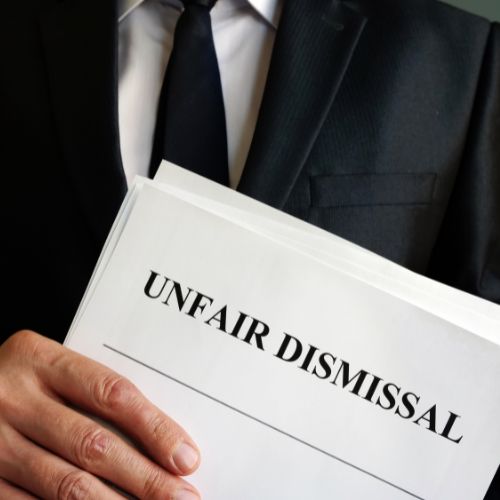The Covid-19 pandemic has thrust health and safety claims under the Employment Rights (NI) Order into the spotlight. The Order provides a number of protections to staff in respect of health and safety complaints which have been clarified and refined by Tribunals over the course of the pandemic. The Employment Tribunal and Employment Appeals Tribunal in England and Wales have delivered a number of Judgments in this respect which will likely influence the approach of the Tribunal in Northern Ireland.
Rodgers v Leeds Laser Cutting
The above case found that an employee who was dismissed for failure to attend work was fairly dismissed. The employee had refused to attend work owing to a fear he would infect his children with Covid-19.
The Tribunal concluded that the employee was unable to establish a reasonable believe that a “serious and imminent danger” existed in his workplace.
In this case the Tribunal were influenced by the employee’s actions including breaching self-isolation guidance and the employer’s Covid-19 mitigation measures including the implementation of hand washing and social distancing.
Accattatis v Fortuna Group (London)
The above cased concerned an employee who expressed concerns regarding the safety of commuting to and working in the office during lockdown. The employee had repeatedly asked to be furloughed to mitigate this risk. In contrast with Rodgers v Leeds Laser Cutting the Tribunal found that there were circumstances of serious and imminent danger at the employee’s workplace.
However, the employee’s claim was dismissed on the basis that his response to the danger was not reasonable. The employee had requested to stay at home which was agreed by his employer. However, he had further requested to be allowed to work from home on full pay which the employer believed was not workable or to be furloughed on 80% pay.
This case reminds us that whilst the employee has a right to absent himself from work in circumstances of serious and imminent danger, it does not automatically follow that they have a right to work from home or be placed on furlough. The reasonableness of these requests will be facts specific.
Gibson v Lothian Leisure
In contrast to the decisions above, in Gibson v Lothian Leisure the employee was successful in their claim for automatic unfair dismissal. The employee had raised concerns about the availability of PPE and other Covid-19 mitigation measures as a result of his concern regarding a clinically vulnerable family member. The employer responded to the employee’s concerns by telling him to “shut up and get on with it” and subsequently summarily dismissed the employee.
Sinclair v Trackwork Ltd
In the above case an initial decision by the Employment Tribunal was overturned on appeal to the EAT. The employee was a member of staff designated by his employer to carry out activities in connection with health and safety and would therefore have enjoyed enhanced protection when raising health and safety issues.
The employee’s efforts to enhance health and safety were met by a negative response from other staff who raised concerns regarding his “overcautious and somewhat zealous” approach. The employee was subsequently dismissed due to the “upset and friction” his activities had caused.
The Tribunal initially rejected the Claimant’s claim that his dismissal was on the basis of his efforts to enhance health and safety, finding that, his dismissal was based on the effect his approach had had on staff morale.
However, the Tribunal’s decision was overturned on appeal to the EAT who held that the relevant section of the legislation provided broader protection to designated health and safety staff. The EAT held that the effect on staff morale could not be “properly separable from the carrying out of the activity itself” and that the employee’s actions were not unreasonable or malicious. The EAT upheld the employee’s claim for unfair dismissal.
Castano v London General Transport Service Ltd
Under the Employment Rights (NI) Order employees who have been designated to carry out activities in connection with health and safety enjoy a higher degree of protection than other employees. It is therefore useful to have clarification as to whom this additional degree of protection applies.
The employee in this case was a bus operative who was subject to general health and safety requirements in their contract of employment. The EAT concluded that employees who had “some health and safety obligations as part of their duties did not mean that they had been designated to carry out this far more specific role”
Rather the EAT concluded that to qualify as a staff member designated to carry out activities in connection with health and safety an employee must be designated “over and above their ordinary job duties, to carry out specific activities in connection with preventing or reducing risks”
Advice for Employers
When considering the practical application of these principles in an employment setting, I would advise that employers consider the following:
- Regularly reviewing and updating their health and safety assessments in line with Covid-19 and keeping good records of the relevant guidance from government at the time of their assessment;
- Keeping records of how risk assessments and government guidance impact individual employees in respect of decisions to require them to work from the office;
- Giving consideration to which employees are designated as “carrying out activities in connection with health and safety” and being cognisant that in the absence of such an employee all employees may enjoy a greater degree of protection.
For further advice and guidance, please contact the Employment Department on 028 9043 4015.

